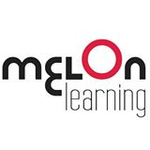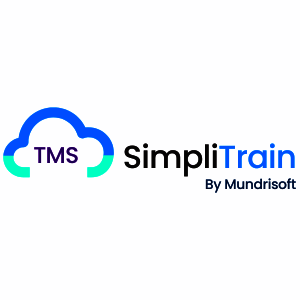Description

Melon LMS

SimpliTrain
Comprehensive Overview: Melon LMS vs SimpliTrain
As of my last update in October 2023, I don't have specific or updated information on a product called "Melon LMS, SimpliTrain." However, I can provide a general overview on how to analyze and compare similar LMS (Learning Management System) products if they existed or are released under such names. You might want to look up the latest data or consult the respective companies’ official resources for precise details.
When evaluating an LMS like what you describe as Melon LMS or SimpliTrain, here are the key aspects one would typically consider:
a) Primary Functions and Target Markets:
-
Primary Functions:
- Course Authoring Tools: The ability to create, organize, and deploy educational courses.
- User Management: Enroll and manage learners and educators.
- Assessment: Tools for gauging learner understanding through quizzes and tests.
- Reporting and Analytics: Monitoring progress and performance of learners.
- Communication Tools: Features like forums, chat, and announcements to facilitate communication.
- Integration Capabilities: Support for integrating with other tools like CRM, HR software, etc.
-
Target Markets:
- Melon LMS: This could be aimed at corporate training environments, focusing on upskilling employees and compliance training programs.
- SimpliTrain: It might target educational institutions like schools, colleges, and universities, focusing on curricular education and continuous learning opportunities.
b) Market Share and User Base:
-
Without specific data, it's difficult to give an accurate comparison of market share and user base:
- Melon LMS: If it’s new or niche, it may have smaller market share compared to established LMS giants like Moodle or Canvas. It might focus on a unique sector or specific geographic region to build its base.
- SimpliTrain: If it has extensive partnerships with educational institutions, it could have a broader user base in the academic sector.
-
In general, market share for LMS solutions can be gauged via industry reports or publications which could provide insights into adoption rates and user preferences.
c) Key Differentiating Factors:
-
User Experience and Interface: Ease of use and intuitive design can be a major differentiator. If either Melon LMS or SimpliTrain has a more user-friendly interface, it could be preferred by users.
-
Customization and Flexibility: LMS systems that offer greater customization to fit various learning scenarios might stand out. For instance, if Melon LMS is highly customizable to accommodate corporate branding and training workflows, it might appeal more to businesses.
-
Pricing Models: Pricing structures such as per-user, subscription-based, or freemium models can influence adoption. Competitive pricing coupled with robust features will be attractive to cost-sensitive markets.
-
Customer Support and Training: The level of support provided, such as 24/7 customer service or dedicated account managers, can significantly enhance customer satisfaction and loyalty.
-
Technology and Integration Capabilities: The ability of a product to integrate with other systems (such as CRM or ERP) seamlessly, and its support for emerging technologies like AI or AR for educational content, could differentiate it from competitors.
These factors can vary widely between different LMS products, so it would be important to look at each of these areas specifically for Melon LMS and SimpliTrain to get a comprehensive understanding of how they compare. For the most accurate information, consider reviewing case studies, industry reviews, and product demos from the vendors directly.
Contact Info

Year founded :
Not Available
Not Available
Not Available
Not Available
Not Available

Year founded :
2020
+1 612-464-4999
Not Available
India
http://www.linkedin.com/company/simplitraintms
Feature Similarity Breakdown: Melon LMS, SimpliTrain
To provide a feature similarity breakdown for Melon LMS and SimpliTrain, we can analyze their core features, user interfaces, and any unique features that set each product apart. Please note that since the software landscape evolves rapidly, some features might have changed after my last update, so it's always a good idea to check the latest product specifications directly from the providers.
a) Core Features in Common:
-
Course Management: Both platforms typically offer comprehensive course management features, including the creation, organization, and delivery of courses.
-
Content Authoring: Integrated tools for creating multimedia content and assessments.
-
Learner Management: Features for enrolling users, tracking progress, and generating performance reports.
-
Assessments and Quizzes: Ability to create quizzes, tests, and assessments to evaluate learner understanding.
-
Reporting and Analytics: Both provide analytics tools to measure learner engagement and course efficacy.
-
Mobile Access: Access to learning materials via mobile devices to facilitate learning on-the-go.
-
Integration Capabilities: Ability to integrate with third-party applications such as HR systems, CRM, and other educational tools.
-
Certification and Compliance: Management of certifications and compliance tracking for industries that require it.
-
Social Learning Tools: Features that support forums, discussion groups, and other collaborative learning activities.
b) User Interface Comparison:
-
Melon LMS: Known for its intuitive and user-friendly interface. It often features customizable dashboards, which allow both learners and administrators to modify their view to better suit their needs. The layout tends to be modern and video-friendly, encouraging interactive content delivery.
-
SimpliTrain: Typically aims for simplicity and ease of use, focusing on minimizing the learning curve for new users. The interface may emphasize straightforward navigation and accessibility, often using clear button layouts and a logical flow for course access and management.
In comparing the two, user feedback may highlight Melon LMS for a more visually appealing and customizable interface, while SimpliTrain might be preferred for those prioritizing speed and simplicity in design.
c) Unique Features:
-
Melon LMS:
- Gamification Elements: Incorporates elements such as badges, leaderboards, and points to enhance learner engagement.
- Advanced Customizability: Options for deeper customization for branding, course delivery, and the learner's journey.
- AI-driven Recommendations: Utilizing AI to suggest courses and material based on user progress and preferences.
-
SimpliTrain:
- Scenario-based Learning: Features that allow for scenario-based quizzes and interactive simulations, enhancing practical learning.
- Extensive Library of Pre-built Courses: Offers a wide array of ready-to-use courses, saving time and resources for organizations.
- Specific Industry Modules: Tailored features and content for industries like healthcare or finance where compliance and regulation are critical.
In summary, both Melon LMS and SimpliTrain share a solid set of core features. Key differences often lie in their interface styles and unique offerings, where Melon LMS might cater more towards customization and engagement, while SimpliTrain could excel in ease of use and industry-specific modules. Always consult with the vendors to get the most current and comprehensive details.
Features

Not Available

Not Available
Best Fit Use Cases: Melon LMS, SimpliTrain
When evaluating the best fit use cases for Melon LMS and SimpliTrain, it's important to consider the unique strengths of each platform, as well as the specific needs of different businesses and projects. Here's a breakdown of how each system might be best utilized across various contexts:
Melon LMS
a) Best Fit for Melon LMS:
-
Medium to Large Enterprises:
- Melon LMS is well-suited for medium to large enterprises with complex training needs. Its robust feature set can support diverse training programs, multiple departments, and a large number of users.
-
Corporations with Regulatory Compliance Needs:
- Industries like finance, healthcare, or manufacturing that require stringent compliance training will benefit from the comprehensive compliance tracking and reporting features of Melon LMS.
-
Organizations Seeking Customization:
- Businesses that require a customizable learning management system to align with their specific processes and branding may find Melon LMS to be a great fit due to its capability for deep customization.
-
Global Companies:
- With features supporting multiple languages and internationalization, Melon LMS is ideal for companies operating in multiple countries that need an LMS capable of delivering content to a global audience.
d) Catering to Different Industry Verticals or Company Sizes:
- Melon LMS offers scalability and customization, making it suitable for industries like pharmaceuticals, automotive, and finance where complex compliance and reporting structures are common. It can seamlessly adapt to the needs of different departments, whether they're focused on sales training, compliance, or employee onboarding.
SimpliTrain
b) Preferred Use Cases for SimpliTrain:
-
Small to Medium-Sized Businesses (SMBs):
- SimpliTrain is an excellent choice for SMBs looking for a straightforward, easy-to-implement solution without the need for extensive customization. It offers essential features at a competitive price.
-
Short-Term or Project-Based Training:
- For businesses or training providers conducting short-term courses, workshops, or project-based trainings, SimpliTrain provides an efficient and cost-effective platform to deliver and manage learning.
-
Focused Skill Development:
- Companies aiming to upskill their workforce with targeted training programs in areas such as IT, marketing, or sales would benefit from SimpliTrain's focused modules and easy content management.
-
Industries with Fast-Changing Content Needs:
- Industries such as technology and digital marketing, where content and skills requirements change rapidly, can leverage SimpliTrain's user-friendly interface to quickly update and deliver new training materials.
d) Catering to Different Industry Verticals or Company Sizes:
- SimpliTrain caters well to industries like retail, hospitality, and education, where training needs are often dynamic and require a platform that is easy to update and manage. It’s particularly beneficial for departments focusing on specific skills development, customer service, or routine compliance training.
Summary
Melon LMS is geared more towards larger businesses with complex, customizable, and global training needs, while SimpliTrain is ideal for smaller companies or projects requiring a straightforward, easy-to-deploy solution. Both platforms serve different ends of the market spectrum effectively by addressing industry-specific requirements and organizational scales, ensuring that all training and learning needs are met comprehensively.
Pricing

Pricing Not Available

Pricing Not Available
Metrics History
Metrics History
Comparing teamSize across companies
Conclusion & Final Verdict: Melon LMS vs SimpliTrain
To conclude the comparison between Melon LMS and SimpliTrain, it is important to evaluate each product based on their value proposition, pros and cons, and to provide tailored recommendations for prospective users.
Conclusion and Final Verdict:
a) Best Overall Value:
In determining which product offers the best overall value, we must consider factors such as cost-effectiveness, feature set, user experience, customer support, and scalability. If Melon LMS provides comprehensive features at a competitive pricing structure, it may appeal to organizations seeking a robust yet affordable solution. Conversely, if SimpliTrain offers unique features or superior user experience that justifies a potential higher cost, it could be seen as offering better overall value for specific audiences.
Ultimately, the best overall value largely depends on the specific needs and budget constraints of the organization. For small to medium-sized businesses with straightforward learning management needs, Melon LMS might offer the best value. For larger enterprises or those requiring advanced features, SimpliTrain might be the preferred choice due to its potential for customization and scalability.
b) Pros and Cons of Each Product:
Melon LMS Pros:
- Cost-effective solution with essential LMS features.
- User-friendly interface, easy to navigate for both admins and learners.
- Strong focus on community features, allowing for collaboration and interaction.
- Flexible and easy integration with existing systems.
Melon LMS Cons:
- May lack advanced or niche features needed by large enterprises.
- Lesser brand recognition might imply fewer community resources or third-party support options.
SimpliTrain Pros:
- Extensive feature set with options for advanced learning paths and analytics.
- Scalable solution suitable for large enterprises or growing organizations.
- High level of customization possible, allowing for bespoke solutions tailored to specific needs.
- Strong technical support and customer service.
SimpliTrain Cons:
- Potentially higher cost compared to competitors, which might be unsuitable for smaller budgets.
- Higher complexity might require a steeper learning curve for administrators.
c) Specific Recommendations:
For users deciding between Melon LMS and SimpliTrain, consider the following recommendations:
-
Assess Business Size and Needs:
- Smaller organizations might prioritize simplicity and cost, making Melon LMS a suitable option.
- Larger organizations requiring complex reporting, in-depth analytics, or integration with other enterprise systems might benefit more from SimpliTrain.
-
Budget Considerations:
- Evaluate the total cost of ownership, including any additional costs for support, training, or customization.
- Factor in both short-term and long-term costs to ensure alignment with budget constraints.
-
Implementation and Support:
- Consider the level of customer support needed during and post-implementation.
- Evaluate the availability of training resources and community support for each platform.
-
Trial and Feedback:
- Make use of free trials or demos to assess the user experience and gather feedback from potential users within the organization.
- Consider reviews and case studies from similar industry players to understand the practical implications of each choice.
By carefully evaluating these aspects, organizations can make an informed decision that aligns best with their strategic goals and operational needs.
Add to compare
Add similar companies




